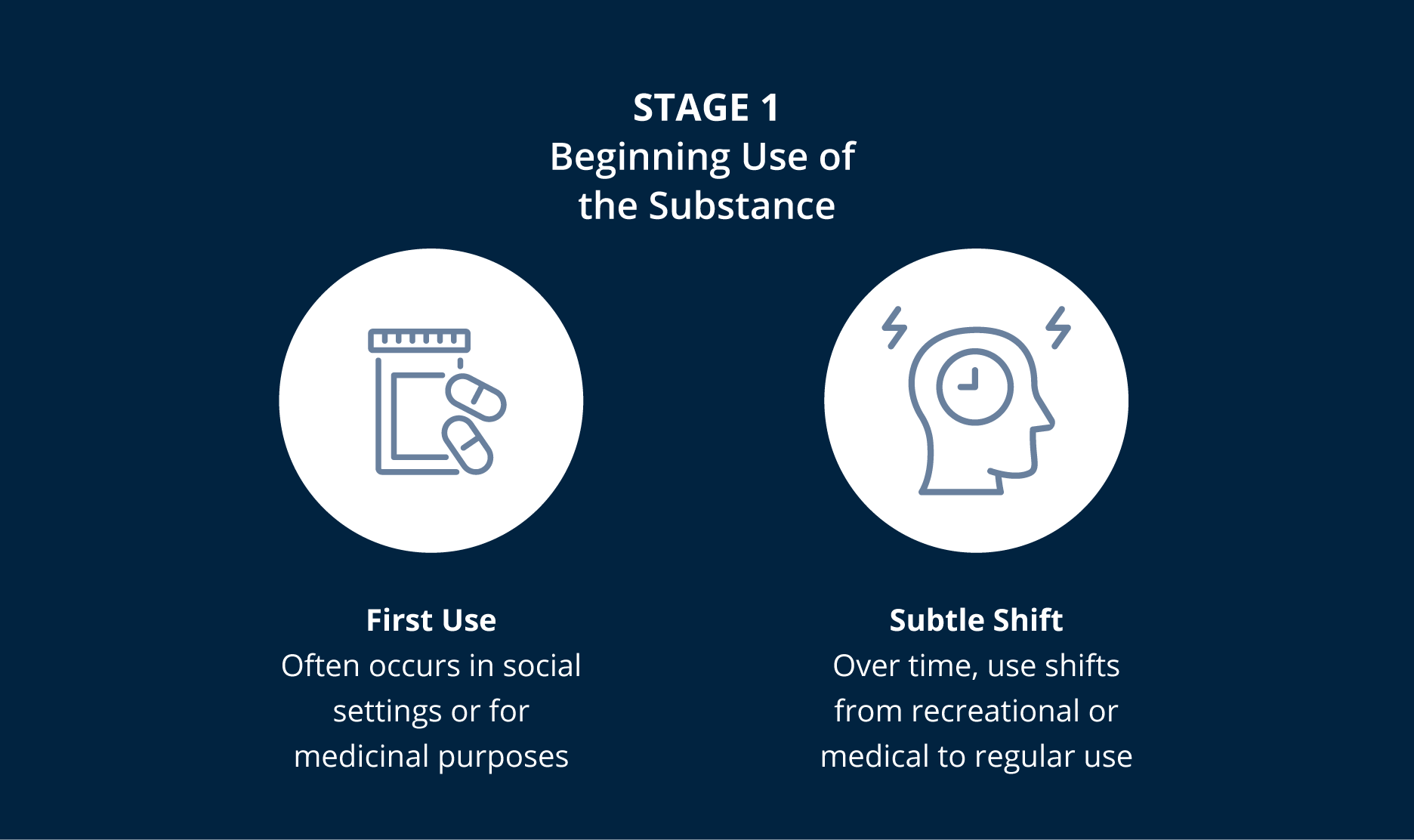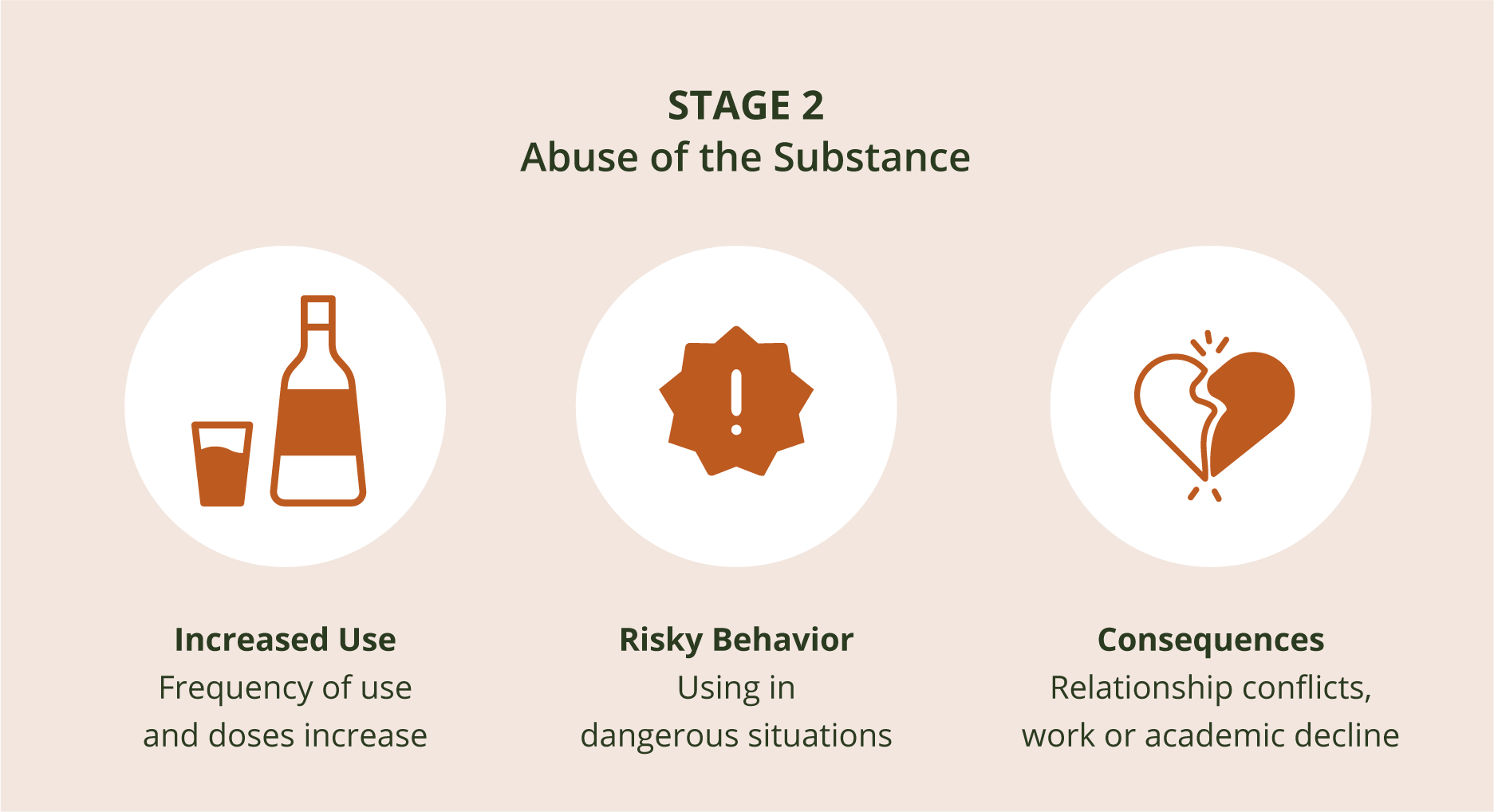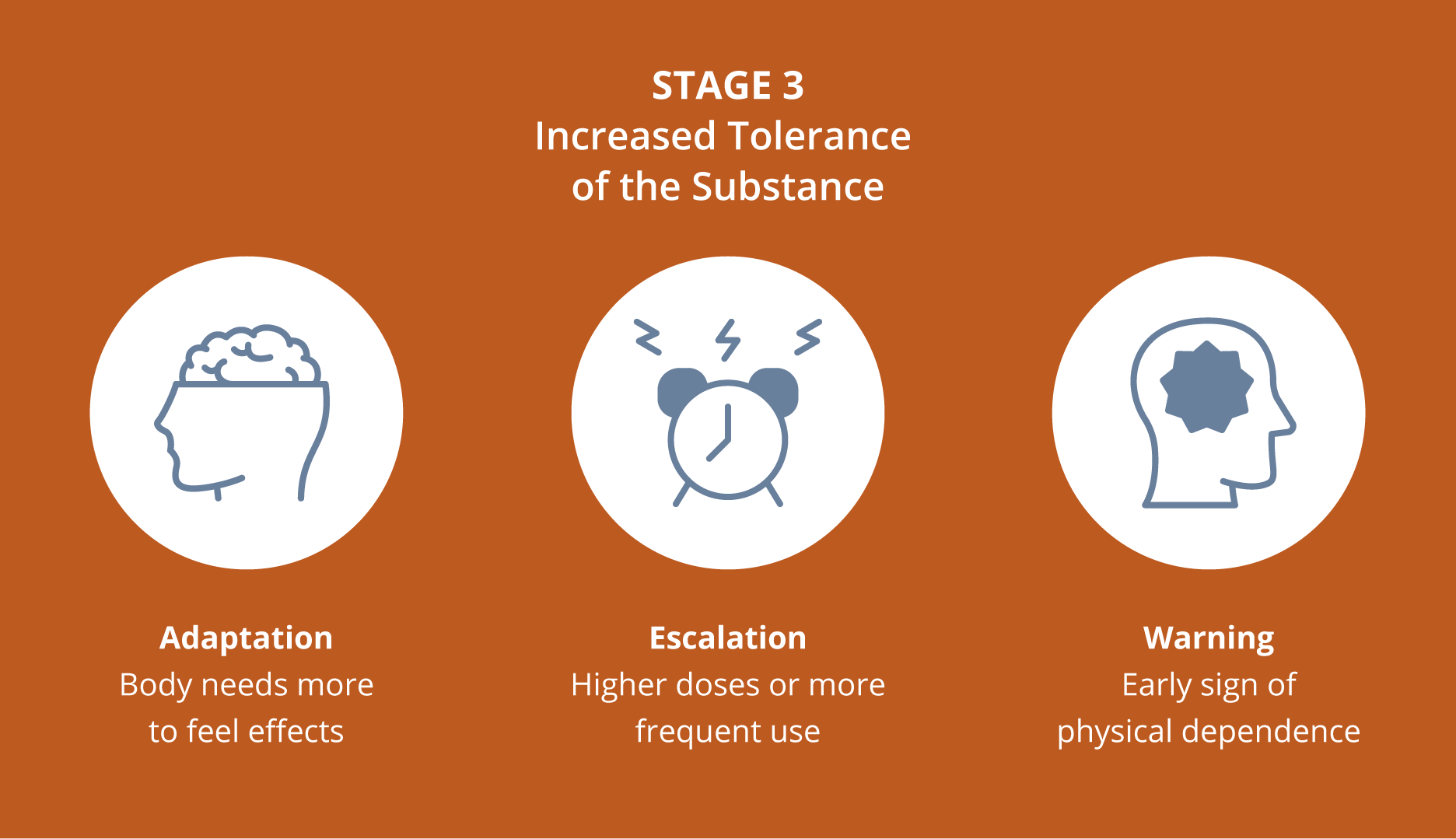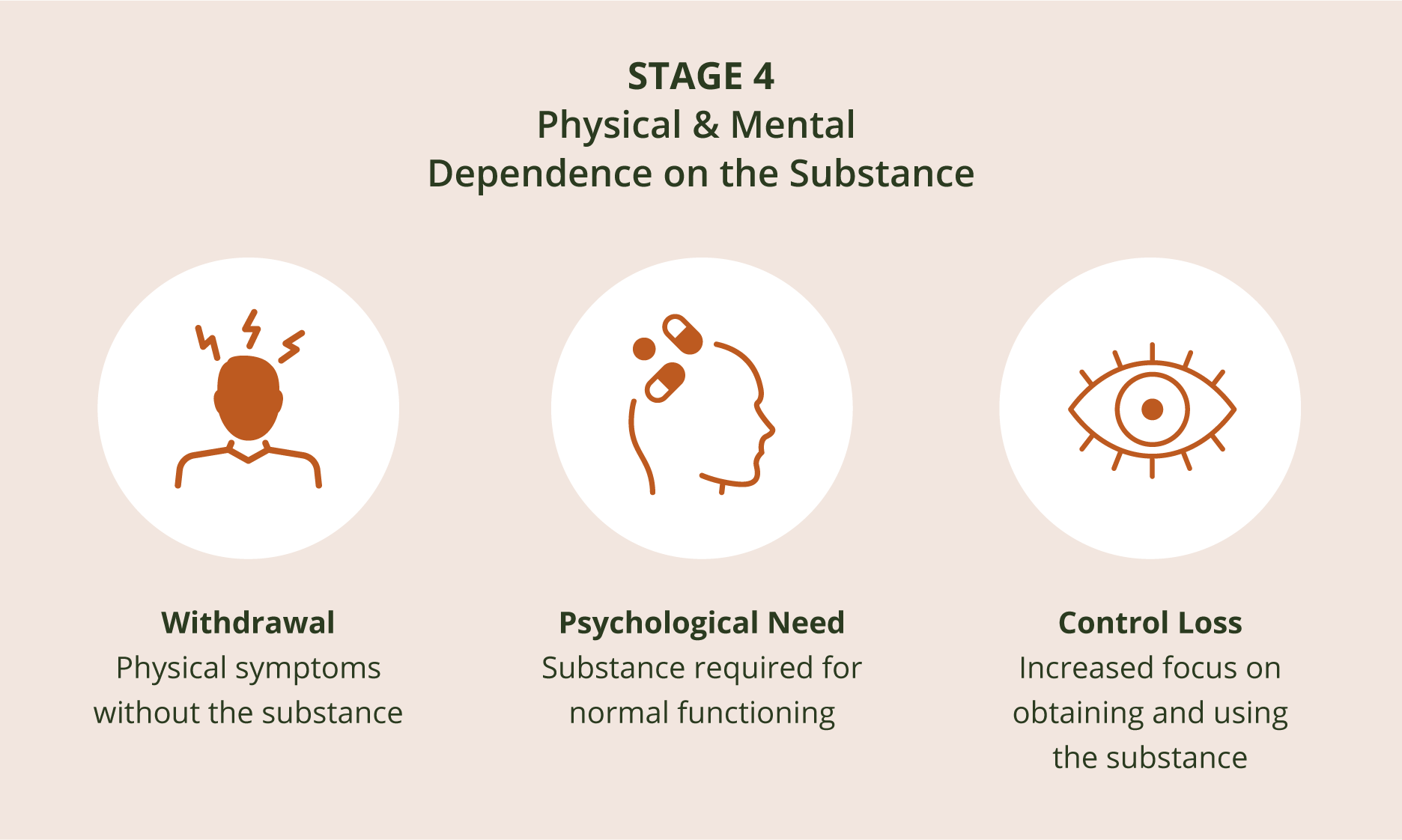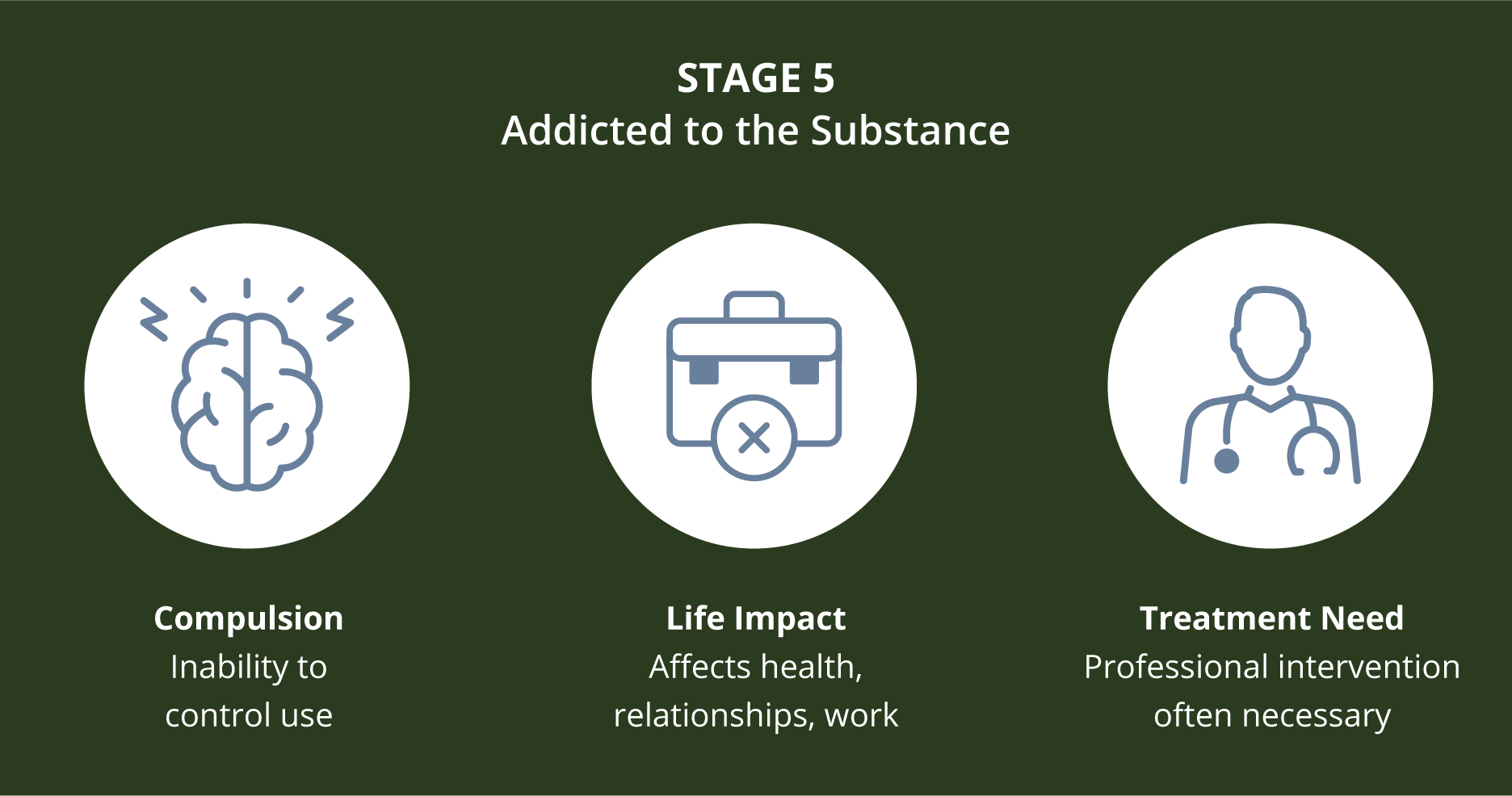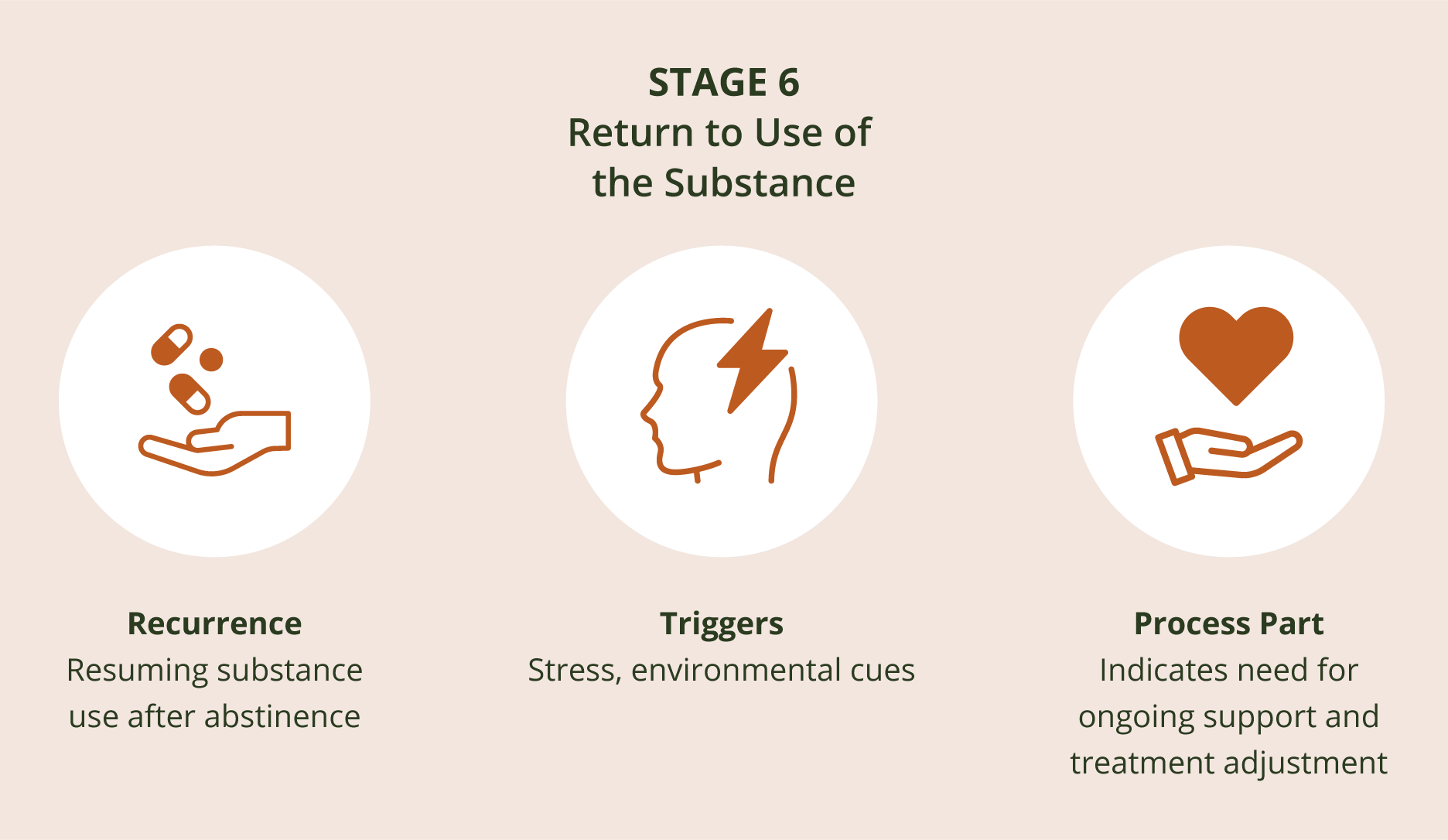Addiction is a chronic disease that unfolds in various stages, each presenting its own set of challenges. It impacts not just physical health, but also mental and emotional well-being.
The onset of addiction varies greatly. For some, it develops over time, while for others, it can happen quickly—and it can affect individuals of any social or economic status. This journey is highly individualized, typically beginning with subtle changes in behavior or usage patterns and potentially escalating to a more severe condition.
By shedding light on the stages of addiction, we aim to foster empathy, encourage better intervention strategies, and assist those on their path to recovery.
Understanding the Role of Stigma in Addiction
In discussing addiction, it’s crucial to acknowledge the role of societal stigma. Stigma surrounding addiction often leads to misunderstanding and judgment, which can significantly affect a person’s willingness to seek help. This negative perception can create barriers to treatment and support, as a person struggling with addiction might fear judgment or discrimination.
By addressing and reducing stigma, we can foster a more supportive and empathetic environment, encouraging those struggling with substance use disorders to seek the help they need without fear of shame or blame. Providing knowledge about addiction and the damaging effects of stigma is vital for moving towards more effective and compassionate approaches to addiction and recovery.
What Are the Stages of Addiction?
Understanding the signs and symptoms at each stage of addiction is essential. This awareness is important not only for those directly dealing with addiction but also for their family members, friends, and the wider community. This understanding leads to more timely and effective support and intervention.
Stage 1. Beginning Use of the Substance
The initial use of drugs or alcohol can vary widely in form and context.
A first experience with alcohol, for instance, often occurs in a social setting and where it is used recreationally.
Initial use of a particular drug, on the other hand, can sometimes begin in a medical context, such as with prescription medications for pain management. What starts as a legitimate use of medication, under a doctor’s guidance for managing pain, can sometimes lead to addiction.
As a person continues using the substance, their use can transition into substance abuse. This change often occurs subtly and can be challenging to recognize initially, both by the individual themselves and those around them.
Stage 2. Abuse of the Substance
The transition from beginning use to abuse occurs when the frequency or manner of substance use starts to become harmful. Substance abuse is characterized by using drugs or alcohol in a way that is dangerous or causes problems.
Signs of abuse are shown through binge drinking, using substances in risky situations, or increasing the dosage of medication beyond prescribed limits.
A person may start to experience negative consequences from this early stage of addiction, including conflicts in relationships, decline in work or academic performance, and health issues, yet continues to use the substance.
Stage 3. Increased Tolerance of the Substance
When a person consistently uses a substance, their body starts to adapt, leading to tolerance. This adaptation is a key stage in the progression of addiction, characterized by the need to consume more of the substance to achieve the same effects.
The body develops tolerance as it tries to maintain its normal functioning despite the presence of the substance. This process is often gradual, and a person might not immediately recognize their increasing need for higher doses or more frequent usage to achieve the desired effects.
This escalation is not only a sign of physical adjustment but also a warning sign that the body is becoming increasingly accustomed to the substance. Such a change can lead to more dangerous consumption patterns as a person tries to recreate the initial experiences of using the substance.
The emergence of tolerance marks a significant shift in the addiction journey, moving from voluntary use towards dependence.
Stage 4. Physical & Mental Dependence of the Substance
Dependence is a significant and often alarming development in the addiction journey. It represents a shift from using substances for their effects to needing them for normal functioning.
Dependence can manifest physically or psychologically. Physically, the body experiences withdrawal symptoms without the substance, such as nausea, tremors, sweating, and intense cravings. These symptoms can be debilitating and are a clear signal that the body has adapted to the substance’s presence as a new normal.
Psychological dependence involves a perceived need for the substance to cope with daily life, manage stress, or feel ‘normal.’ This stage often results in a person spending more time obtaining, using, and recovering from the effects of the substance.
In this stage, substance use is no longer just a choice but a perceived necessity, with significant implications that a loved one is struggling with their mental and emotional health. Dependence is a critical juncture, often necessitating professional intervention, as it marks a loss of control and an increased risk of long-term health consequences.
Stage 5. Addicted to the Substance
Addiction is the stage where substance use becomes compulsive and uncontrollable. This stage is marked by a complete loss of control over substance use, despite awareness of its harmful effects.
Addiction dominates a person’s life, with the pursuit and use of the substance taking precedence over nearly all other interests and responsibilities. It impacts every aspect of life—physical health, mental well-being, relationships, work, and more.
At this point, intervention and treatment are crucial as a person is often unable to stop on their own.
Stage 6. Return to Use of the Substance
A return to substance use after a period of abstinence—this is known as relapse—is a common and often misunderstood aspect of addiction recovery. It is not a sign of failure but rather a part of the recovery process for many individuals.
Relapse can be triggered by various factors, including stress, environmental cues, or unresolved psychological issues. It highlights the need for ongoing support and may indicate that adjustments in treatment or coping strategies are necessary.
Awareness of the potential for relapse provides valuable insights into the challenges of maintaining sobriety and the importance of a supportive network and continuous care.
Addiction Treatment with Lumina Recovery
The journey through the stages of addiction is complex and often challenging. Recognizing and understanding these stages is crucial for effective support, intervention, and treatment.
It’s important to remember that each step, whether forward or backward, is part of a larger journey towards healing, sobriety, and addiction treatment.
If you or someone you know is struggling with addiction, you don’t have to face it alone. Our recovery centers offer comprehensive support and treatment programs tailored to each individual’s needs. Reach out to Lumina Recovery today.



